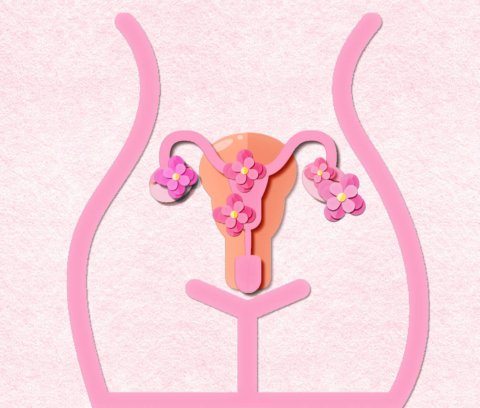Psychologist Jacqui Maguire investigates fascinating science that shows how your mindset and unhelpful thinking patterns can damage your genes and affect your health as you get older.
Buddha said it first, but now science has confirmed it: “We are shaped by our thoughts; we become what we think.”
Nobel laureate Elizabeth Blackburn and health psychologist Elissa Epel have demonstrated that the way you think can influence your genetic expression and cause premature ageing. Specifically having a negative and unhelpful mindset can cause your telomeres to shorten, in turn speeding up the ageing of individual cells within your body. Who would have thought that the words floating through your mind could equal greying hair or crow’s feet?
What are telomeres?
The human body is made of many different cell types (such as skin, nerve and muscle cells) which all operate to keep us functioning optimally. Every cell contains a set of chromosomes, which hold our DNA – the genetic material that makes each individual unique. At the end of each chromosome sits the telomere, which keeps genetic material from unravelling. Telomeres are like the hard caps at the ends of your shoelaces.
What’s the connection between ageing and telomeres?
As we age our cells divide and replicate. Every time this division occurs, our telomeres naturally shorten. When telomeres become too short, their cells stop dividing and die. Think about the cells in your hair that hold the pigment. When the telomeres in that particular cell become too short, the cell dies and your hair turns grey. This is ageing.
How your thoughts and mindset make a difference
Five thought patterns have been linked to telomere shortening: cynical hostility, rumination, pessimism, suppression and excessive mind-wandering. The word “pattern” is imperative, highlighting that this research is discussing consistent ways of thinking rather than occasional passing thoughts. Take time to read through the list, and reflect on whether any of the thought patterns resonate with you.
If the answer is yes, don’t panic. Being aware of your thinking patterns allows you to implement strategies to shift those thoughts, in turn reducing and, in some cases, reversing your telomere shrinkage. In other words, you can increase your “health span” (the number of years you stay healthy and active) and slow down your ageing.
Cynical hostility
Cynical hostility is defined as thoughts that induce heightened anger and represent distrust in others. Imagine the last time you were trying to merge from an off-ramp on to a busy motorway, and the other motorists wouldn’t let you in. A person experiencing cynical hostility might rage that the other drivers have never heard of “merge like a zip” and think “they are purposefully blocking me”.
Those who experience frequent bouts of cynical hostility and negative mindset (more common in men), have been shown to have higher systolic blood pressure, fewer social connections and reduced optimism, which is linked to increased heart problems, short telomeres and premature death rates.
What’s helpful?
- Take deep diaphragmatic breaths to calm your brain
- Bring on positive emotions – think of someone you love or listen to good music.
Rumination
If we were on a farm, rumination would describe the action of cows chewing the cud. In human psychology, rumination refers to the act of repeatedly mulling over unhelpful thoughts, when no processing or shift in perspective is occurring. Rumination leads to enhanced stress and cortisol levels, reduced mood, heightened anxiety, and of course, shortened telomeres.
What’s helpful?
- Distraction – exercise, clean the house, write lists.
- Make a plan to address the problem you are ruminating about. You don’t have to action the plan, the process is useful in itself.
Pessimism
Pessimistic thinking represents a loss of hope and inability to see a path forward in the midst of challenging situations.
In the face of adversity, people who experience regular pessimistic thoughts will often self-blame, view the situation as never-ending and believe that the adversity is likely to spread to other areas of their lives. Pessimistic thinking has been linked to higher cortisol levels and slowed physical recovery from illness and injury.
What’s helpful?
Reframe your thought patterns to be realistically optimistic. Ask yourself:
- How long is this challenge likely to last?
- Is this challenge likely to impact other areas of my life?
- Could this have happened to anyone else?
Suppression
When life throws us negative curveballs, or we are required to face unpleasant or difficult situations, we can find it hard to face the emotions and thoughts connected to these events. At times, we may choose to avoid or suppress those thoughts in an attempt to escape distress. Research has demonstrated that when we attempt to suppress thoughts, eventually those thoughts return with heightened strength.
What’s helpful?
- “Let it go” – give up trying to control your thoughts. Researchers have found that when we let ourselves think about the thing we are trying to block, we process those thoughts far more quickly.
Mind-wandering
Harvard research has highlighted that people spend 47 percent of their day mind-wandering, usually lost in thoughts about the past or what might happen in the future. Negative mind- wandering has been linked to increased unhappiness, stress and shortened telomeres.
What’s helpful?
Practising mindfulness is one strategy, as it trains the brain to hold your attention in the present moment. Here are some ways to practise:
- Try a mindfulness meditation app: Headspace, Calm, Smiling Mind.
- When in nature, use your senses to hold your mind in the moment.
- Put your phone away and remain present when talking with others.
Related article: Three Self Help Books That Are Life Changing








